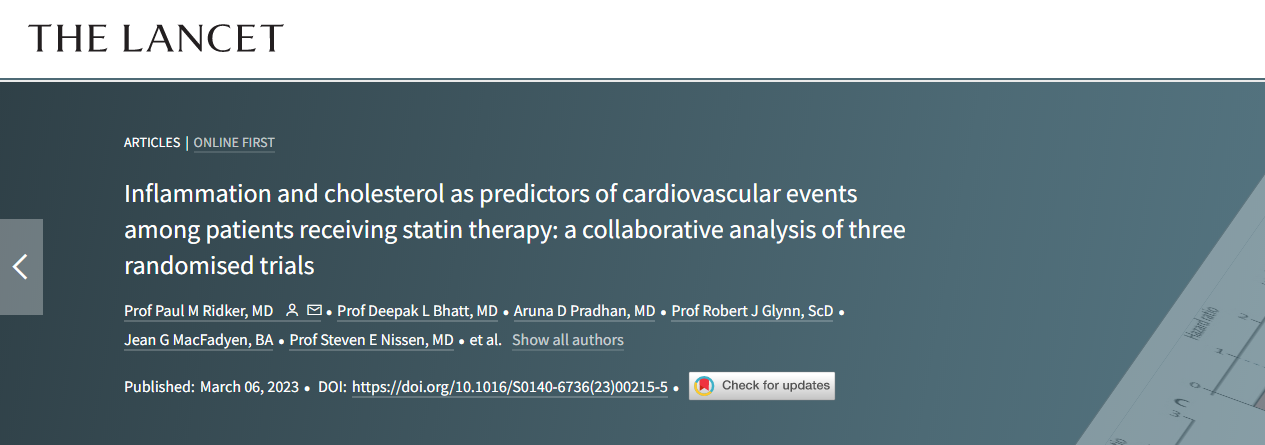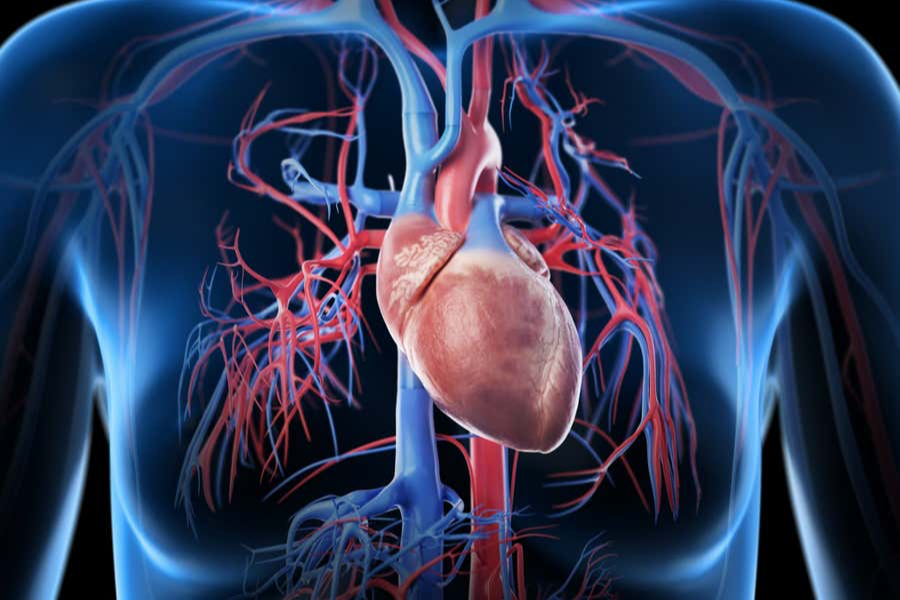Recently, the article "Inflammation and cholesterol as predictors of cardiovascular events among patients receiving statin therapy: a collaborative analysis of three randomized trials" was published in The Lancet, revealing that inflammation could be a key factor in heart disease, just like cholesterol.

For decades, cholesterol has been abstracting scientists' attention when exploring treatment for heart disease. And the research found that the "bad cholesterol" level has a connection to its attack. Moreover, cholesterol is one of the main components of fatty plaque. The ruptured plaque will block the small blood vessels downstream and further cause heart disease and stroke. Therefore, cholesterol-lowering statins have become one of the most commonly used drugs because it's found effective in reducing heart attacks.
However, the new study demonstrates that fatty plaque has immunocyte activity instead merely an inert blockage. Plaque with higher inflammation is more likely to break down and release deadly debris into the blood.

Fortunately, the latest evidence suggests that statins may play a role by inhibiting inflammation and lowering cholesterol.
Paul Ridker's team from Brigham Women's Hospital analyzed data from three large trials. Each trial tested a treatment designed to reduce heart attacks and strokes in patients taking statins. At the beginning of the experiment, the subjects underwent a series of blood tests, including cholesterol and a compound known as C-reactive protein (CRP), which is a marker of inflammation. Three trials have found that high CRP is associated with more cardiovascular disease deaths than high cholesterol.
“If we don't eliminate inflammation, we can never defeat the disease. And it's no longer a hypothesis but an attested truth.” Ridker said.
In the past few years, a plant-derived compound called colchicine has been used to suppress inflammation in gout patients. Two recent randomized trials have shown that colchicine can reduce strokes and heart attacks by approximately 30%. In 2021, colchicine was recognized by the European Heart Association guidelines as an option for preventing cardiovascular disease.
Increasingly evidence suggests that doctors should address inflammation as important as cholesterol issues to prevent heart disease and stroke.
Inflammation and cholesterol as predictors of cardiovascular events among patients receiving statin therapy: a collaborative analysis of three randomised trials
First Author: Paul M Ridker
Journal: The Lancet
Background
Inflammation and hyperlipidaemia jointly contribute to atherothrombotic disease. However, when people are treated with intensive statin therapy, the relative contributions of inflammation and hyperlipidaemia to the risk of future cardiovascular events might change, which has implications for the choice of adjunctive cardiovascular therapeutics. We aimed to evaluate the relative importance of high-sensitivity C-reactive protein (CRP) and low-density lipoprotein cholesterol (LDLC) as determinants of risk for major adverse cardiovascular events, cardiovascular death, and all-cause-death among patients receiving statins.





